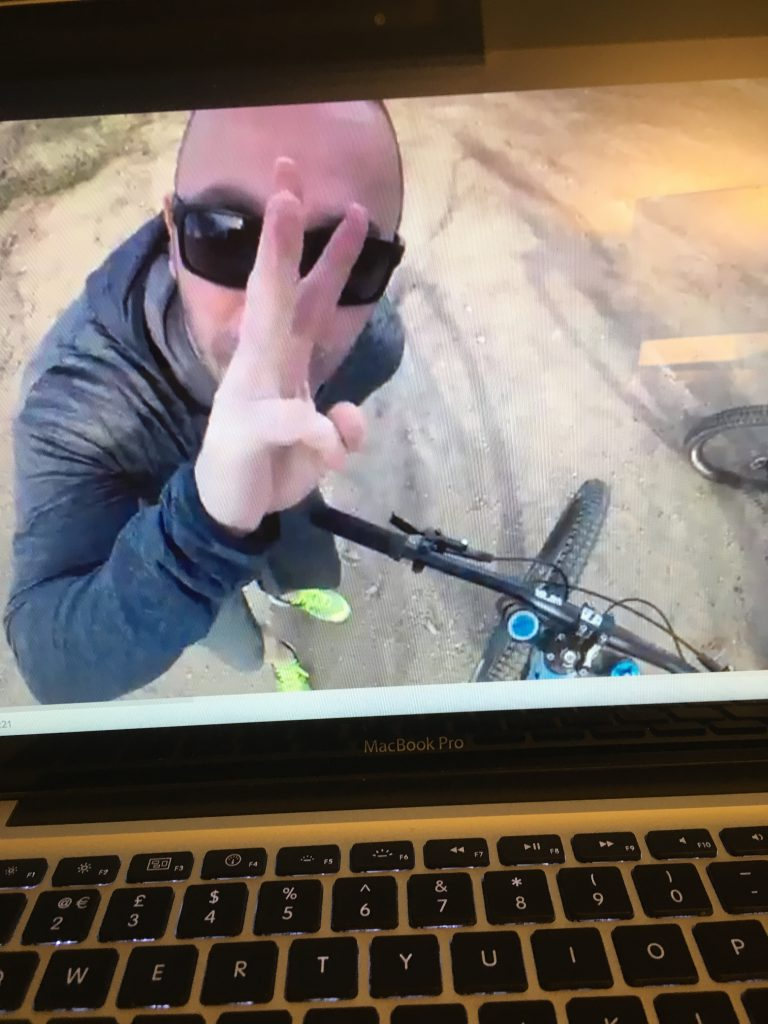


Last week I was invited to take part in a panel discussion at the Red Bull Coaches Forum. I was in good company, sat next to Darren Burgess and Scott Drawer. Our panel was discussing 'The View From The Outside' and the questions centred around what mainstream sports could learn from action sports. I made some notes on my way down to London and I figured I would share them with you and expand on each note a little.
How does working in action sports compare to mainstream sports?
Superficially - totally different
- Fundamentally - same (humans). I think anyone that has specialised in one sport will want you to believe that their sport is 'special' and totally unique. Whilst this is a convenient narrative, I think it hides the reality, that whilst each sport will have it's own challenges, cultures, training methodologies, traditions etc. When we get down to the core business of physical preparation there are probably more similarities than differences.
I think having worked with 36 different sports I'm in a position to make that statement!
On the surface you would think working with downhill mountain bike riders is the total opposite of working with professional football players. I'll accept that the way I coach and interact with the athletes may be different, but the fundamentals of physical preparation still apply, regardless of the performance outcomes.
One phrase that cropped up numerous during the panel discussions was that "they just have a different map of the world". I would suggest the map is the same, it's just orientated differently and viewed from a different point. It's still the same map but you need to figure out what they can see! What are the challenges that action sports present?
What are the challenges that action sports present?
During the first meeting with the mountain bike riders they were very quick to point out that “this is not “British F****&G Cycling!â€
Despite hearing those words I still pressed in for a good 4-6 weeks trying to bring them round to a more structured training and monitoring programme. I soon learned that a more subtle approach was needed if I was to be any use! We needed to get our maps aligned!
The working environments and resources are really challenging. Tops of mountains are not know for their state of the art training facilities! Get good at improvising and working with what you've got. Being flexible and adaptable is a really important skill to develop if you want to work in performance sport. It's vital that you orientate the programme and support interventions to the circumstances you're faced with.
Early in my coaching career I was annoyed that a session I had just delivered hadn't met the standards that I had set for myself. The coach (the best one I've ever worked with) asked me “Nick, did you do the best given the circumstances?†The answer was yes, and she replied “well then there's nothing to beat yourself up aboutâ€.
Accept the mainstream! Whilst the riders were quick to point out that this wasn't “British F*****G Cyclingâ€, action sports are still in their infancy in terms of their understanding and application physical preparation strategies. They're where the mainstream sports were back in the mid 90's. I think they would do well to take some of the best bits about the sport science and medicine support from the mainstream and apply it to their world.
Action sports can keep shouting 'we are special' but they need to avoid genre blindness, simply following the script because “that what we do in action sportsâ€. I've only experienced the downhill mountain bike circuit, but if other action sports are similar in their take up of sport science and medicine, at some point a team is going to have a proper go at putting in place a consistent sport science and medicine support programme, and that's when you'll see the next step change performance. I wonder which team will give it a proper go?
Has working in action sports changed your practice? If so how?
Absolutely. Without doubt working with the downhill team came just at the right time in my career and as we get stuck into our third season I honestly believe I've become a better coach. I've relaxed! I've become more creative. I've become much better at setting the standards and constraints and then allowing the athlete to make decisions about how their training programme evolves.

I've remembered that the athletes truly are the experts in their sport. Most importantly I ride BMX's round gyms doing hot laps whilst the athlete is getting treatment, all whilst wearing skinny jeans!
So those were my expanded notes.
The day itself was fantastic and I was in awe of the athletes in front of me discussing how they push themselves and their sports to the limits.
Here are the notes (sound bites really) that I took from the other panel discussions.
Fear is healthy - panic is deadly
The line between brilliance and trauma is very thin!
Avoid panic at all costs
We are not reckless about what we do
Change the label from FEAR to FOCUS
You add value to the end result by going through all the rough points
Inverse relationship between fear and complacency
You can't re-surf the wave
Be comfortable with the consequences of the outcome
Experience the worst to experience the best
They just have a different map of the world
Riding the liaison stages are when you can have problems...no excitement...no focus...you'll make silly mistakes.
The race focuses the mind “Double Doubt†- are they ready to go back in or not....think.....answer....think again. If you still think it's going to be a problem then they don't go back in.
All of those sound bites mean something to me. I appreciate they may be a bit random but I reckon you can add your own meaning to each one and figure out how they may apply to a range of situations that you may find yourself in now or in the future.